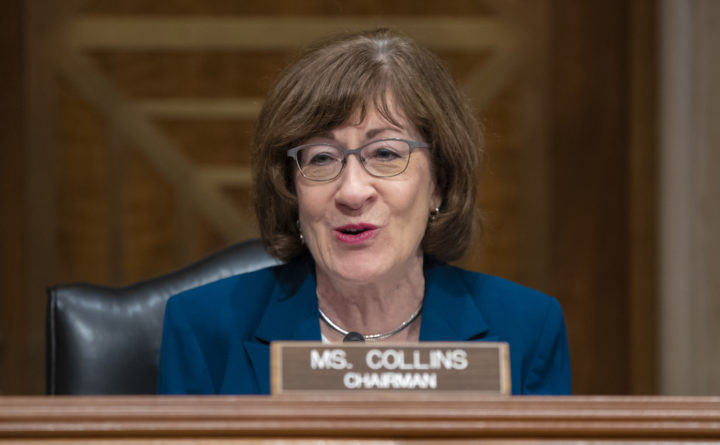
U.S. Sen. Susan Collins, a Republican who has been representing Maine since 1997, can claim the title of Congress’ most bipartisan senator for the sixth year in a row.
The Lugar Center and the McCourt School of Public Policy at Georgetown University on Monday gave Collins the highest bipartisan score for 2017-2018 in the index’s 26-year history, beating out the record set by former U.S. Sen. Gordon Smith, R-Oregon, who lost a re-election bid in 2009.
Scoring is based primarily on how often a member sponsors legislation co-sponsored and introduced by members of the opposite party. Collins placed first, just ahead of U.S. Sen. Rob Portman, R-Ohio. Maine’s other senator, Angus King, an independent who caucuses with Democrats, placed 28th.
On the House side, U.S. Rep. Chellie Pingree, a Democrat serving Maine’s 1st District, placed 138th. Freshman U.S. Rep. Jared Golden, a Democrat from Maine’s 2nd District, was not in the running because he was only elected in November.
Collins, who would be up for re-election for her fifth term in 2020, has long touted her centrist reputation as a point of pride. In a prepared statement on Monday, Collins said she believes “Congress produces the best legislation when it listens to a variety of viewpoints and receives input from both Republicans and Democrats.”
Collins’ focus on her role as one of the few remaining moderates in an increasingly partisan Congress has earned her praise and criticism from both ends of the political spectrum, such as when she split with her party to vote against repealing the Affordable Care Act in 2017, and in October 2018, when she cast a pivotal vote to confirm embattled Brett Kavanaugh, who was accused of sexual assault, to the U.S. Supreme Court.
After the latter vote, Democrats and their allies began online fundraising for her 2020 opponent, despite the fact that no viable candidate has stepped forward. Republicans rallied behind her, as reflected by strong campaign fundraising in the fourth quarter of 2018.
Other measuring systems don’t give Collins quite as high a score for bipartisanship. For instance, a ProPublica tracking of votes against majority Republicans ranks her 21st for 2017 and 2018. So her place atop the Lugar Center list might be as much a reflection of an increasingly divided Congress as it is to her commitment to bipartisanship.
This article originally appeared on www.bangordailynews.com.







